 Hi, everyone! I hope your New Year is progressing well! We’ll be putting our RVs back on the road soon, and since batteries really suffer in storage, I thought some battery-related questions would be appropriate this month. Keep those questions coming. Send your RVing questions to [email protected]!
Hi, everyone! I hope your New Year is progressing well! We’ll be putting our RVs back on the road soon, and since batteries really suffer in storage, I thought some battery-related questions would be appropriate this month. Keep those questions coming. Send your RVing questions to [email protected]!
Hi, Mark,
I have a Holiday Rambler Vacationer, which I purchased used 4 1/2 yr. ago. I am on my third set of house batteries. I add water frequently, but they won’t last. I make sure everything is off before leaving the MH. My current set is about 18 mo. old, and they are shot. Shouldn’t they last longer than that? Also, can I shut down the battery switch in winter without hurting the batteries? A friend told me that the batteries might freeze.
Thanks, Don.
Hi, Don,
Your house batteries should last longer than that! How often do you have to add water? If you have to replace more than an ounce or two per cell every month, your converter is most likely overcharging your batteries and boiling off the water. The float charge applied to your batteries should be around 13.5 volts. Anything more than that speeds up water loss and can shorten your battery life. You may be able to adjust your converter output voltage, but many are nonadjustable and, if defective, should be replaced with a quality 3-stage charger. Also, make sure that you are buying the correct batteries! Only deep-cycle RV or marine batteries should be used as house batteries. Starting batteries will not last very long as house batteries, as they are not designed to be drawn down (deep-cycled) and recharged repeatedly. I believe that the best way to store your batteries over a long period of non-use is to disconnect them from the rig and store them in a place where the temperature stays above freezing. Charge them about once a month, overnight, with a standard automotive battery charger, and check water levels after charging. This will significantly extend the life of your batteries.
Mark,
My darlin’ bride of 29 years and I are full-timers, and this winter we will be dry-camping for a couple of months ( Key West, FL) where generator use isn’t a problem. I have four one-year-old Trojan 6V deep-cycle batteries (T-105’s), wired in series, and we have an inverter (400-watt) that I installed. My (Magnetek) converter/charger is not a multi-stage unit and provides only a trickle charge to the batteries when plugged into electricity or when the generator is running (and only charges the batteries to 80 percent). Other than to dump the holding tanks weekly and return to our dry camping spot (a ¼-mile roundtrip), the motorhome will not be moved, so the alternator will not be able to provide the needed recharging. I anticipate purchasing an external three-stage charger to run off my generator to fully charge my batteries this winter. There are a number of RV-related forums on the Internet that discuss this type of charging, but much of it is confusing and contradictory. I’m hoping you can answer the following for me:
- Do I need a 6V or 12V charger?
- What charge rate (amps) would you recommend to minimize recharging time and to assure full charging?
- Do I connect the charger to the positive & negative posts of one battery and let that battery charge the other three, or do I connect the charger cables to the posts that have the positive and negative connects for the motorhome?
- The RV’s converter/charger does not have a shutoff. Do I need to disconnect the negative ground cable from the batteries when recharging? If so, I have coach & chassis battery disconnect switches inside the motorhome that were provided by the manufacturer. Can I use the coach batteries disconnect switch to accomplish this?
- What features would you recommend the charger have? Any specific brand or type recommendations?
- Are there any other questions that I should be asking but don’t know to do so?
Thanks! Michael
Hi, Mike,
You’ll be much happier with a 3-stage charger! Here are some answers to your specific questions:
- Do I need a 6V or 12V charger?
You will need a 12V charger so that you can charge the whole battery bank at one time.
- What charge rate (amps) would you recommend to minimize recharging time and to assure full charging?
Up to a point, more is better. I’d shoot for a charger in the 50A to 80A range for your size battery bank. To get that kind of amperage, you’ll be looking at a permanent-mount unit, one that’s designed to replace your existing converter. Portable chargers top out around 20A or so, and that will force you to run the genset a long time to charge back up. I really don’t think you should try to use a portable charger. Bite the bullet and upgrade/replace the converter.
- Do I connect the charger to the positive & negative posts of one battery and let that battery charge the other three, or do I connect the charger cables to the posts that have the positive and negative connects for the motorhome?
As long as your battery interconnecting wiring is properly sized, it really doesn’t matter. You have two pairs of 6-volters series connected, and then each pair is parallel connected. The two sets of batteries in parallel are pretty much electrically common. Connect the charger to a point as close to the battery bank as is feasible, observing polarity.
- The RV’s converter/charger does not have a shut off. Do I need to disconnect the negative ground cable from the batteries when recharging? If so, I have coach & chassis battery disconnect switches inside the motorhome that were provided by the manufacturer. Can I use the coach batteries disconnect switch to accomplish this?
It’s probably best to disconnect the converter, just so it doesn’t confuse the 3-stage charger’s voltage sensing and control circuits. The coach battery disconnect will shut off all power to the inside of the coach, so that’s probably not going to be workable for you. Instead, you could simply unplug the converter, or shut off the breaker that powers it. The best answer, though, is “None of the above.” Remove or disable the old converter, and replace it with a new charger. A system like the Progressive Dynamics converter with the charge wizard option is a good choice. A lot less hassle, too! How often do you expect to need to charge back up? Every week? Every few days? Every day?
- What features would you recommend the charger have? Any specific brand or type recommendations?
See above. I’ve had good luck with the Progressive units! www.progressivedyn.com Or splurge on an inverter/charger. Most of the better units have a powerful 3-stage charger.
- Are there any other questions that I should be asking but don’t know to do so?
I don’t know! 🙂 Browse through my “12V Side of Life” article at http://www.marxrv.com/12volt/12volt.htm and see if it stimulates any new questions!
Mark,
I have a Western RV Alpine motor coach with a Cummings 400-hp diesel. I am concerned about my starting batteries for the engine. (1) How long should they last? (2) I turn the power switch for the cabin off, and I also turn the switch to off to turn the whole electrical system off to the motorhome (chassis ground). The batteries still seem to run down. Have you got any suggestions on this matter?
Thank you for your time on this matter ahead of time
Jerry
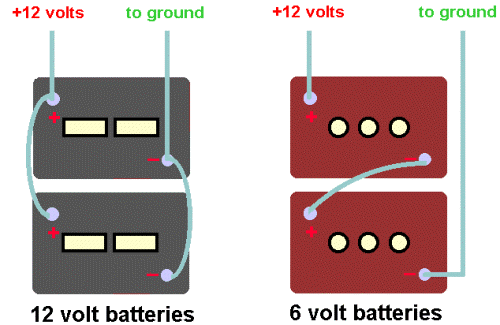 Hi, Jerry,
Hi, Jerry,
I suspect that there are one or more “phantom loads” drawing power from your starting battery. These loads may be tiny, such as the keep-alive current for your in-dash stereo, but over time, they can flatten your starter battery. There may also be a larger load attached that you are unaware of and that is not disconnected by your battery disconnect switches. The only way to tell for sure is to shut everything down, unplug from AC power and then disconnect the ground terminal from your starter battery. Using an ammeter, place one probe on the negative battery terminal and one on the negative cable end. If you are reading anything over a few hundred milliamps of current, you will need to find the source of the current drain and correct it. This can turn into quite a research project, but once you find the phantom load and eliminate it, your starter batteries should stay charged. This method can also be used to identify phantom loads on your RV house batteries.
Mark,
I would like your opinion. Which is better: two 6V golf cart batteries or two 12V deep-cycle RV batteries? We do a lot of dry camping and the 12V batteries don’t seem to last very long.
Thanks, Paul
Hi, Paul,
A lot of RVers have switched from the “standard” group 24 or 27 12V batteries to the larger 6V golf cart batteries. If you have room for them, they are a good choice. They are true deep cycle batteries and will last a lot longer than most common 12V batteries in your RV. They are physically larger, so you must measure carefully before buying them, but I recommend you use them if you can. They are priced about the same as (or a bit lower than) the common 12V deep-cycle battery. Golf cart batteries have a higher capacity than group 24 and 27 batteries. A pair of group 24 12V batteries only provide 140-170 amp/hours of capacity, where a pair of golf cart batteries provide 180-220 amp/hours. If you have room and want to change over to the 6V golf cart batteries, you must make an important wiring change. Most rigs that have two or more 12V batteries have them wired in parallel. When going to the 6-volters, you must wire pairs of them in series to produce the needed 12 volts. This is actually simpler than it sounds. See the diagram below.
Mark,
What would be the best alternative to obtaining additional electric power if you do not have a generator in your rig? I have looked at solar panels (expensive), portable generators (also expensive and heavy) and, most recently, a portable electrical source offered by Cabellas, which is really a heavy duty storage battery although it is shown in their catalog under “generators.” My needs are for extra electrical energy to supplement my 12V batteries. I find that if I am off in the boondocks and have to run my furnace for heat, my batteries lose power overnight. Since I only do this one or two weeks a year, it might be that the Cabelas power source would work. It is by far the least expensive of all the alternatives.
John
Hi, John,
The Cabellas power source you are looking at is just an additional battery, and I doubt that it would be very effective, because it has limited capacity. The best way to increase your available power for boondocking is to add more house batteries to your RV. I suggest doubling the size of your current battery bank. If you are not already using 6V golf cart batteries, consider upgrading. These batteries have greater energy density in the same footprint as 12V deep-cycle batteries and will last a lot longer. If your current battery box is too small, you can actually add the additional batteries in an adjacent compartment or relocate all of your house batteries to a new battery box in a storage compartment. There are a number of marine ready-to-install battery boxes available that will simplify the installation and also help provide for proper ventilation, a critical consideration for any battery installation. Here are some examples.
MidStateBattery.imageworksllc.com/battery-boxes
eTrailer.com/s.aspx?qry=battery+boxes
CampingWorld.com/search/?keyword=battery+boxes
Overtons.com/Boating-Marine/Electrical/Batteries-Accessories/Battery-Boxes-Trays
Although there is some work involved in safely adding batteries to your rig, it will definitely get you the best bang for your buck. Adding a solar panel or a high output 3-stage charger can help maximize your boondocking capability. In fact, just the addition of a very small portable generator (like a Honda EU-1000) and a good quality charger would allow you to charge your batteries and extend your stay almost indefinitely, regardless of weather conditions.
 Founded in 1978, the Escapees RV Club provides a total support network that includes a wide variety of services and opportunities:
Founded in 1978, the Escapees RV Club provides a total support network that includes a wide variety of services and opportunities:
- Mail Service- Escapees offers the largest private mail service in the country. Members are able to personalize their mail delivery with multiple options. Custom sorting options, delivery schedule and even mail scanning. We make it easy!
- Mapping Tool- Plug in your starting point and destination, and let us do the rest! Our mapping tool will show you discount parks along your route, as well as trusted commercial members and endorsed vendors to help you with all of your needs along the way.
- Education- From our annual Escapades to our discussion forum, we help you connect with fellow RVers to share experience and knowledge. For the hands-on learner, RVers’ Boot Camp is a great way to learn about RV operation, safety and maintenance. Our award-winning magazine is also a great resource for peer-to-peer advice from fellow RVers and industry experts.
- Community- When you see an Escapees sticker on a rig, you know you’ve found a friend. Escapees hosts a variety of events throughout the year, including convergences, excursions, chapter rallies and Escapade. Each of these offers the opportunity to connect with other RVers and make new friends.
A complete listing of all Escapees events and a comprehensive list of member benefits are found at www.escapees.com

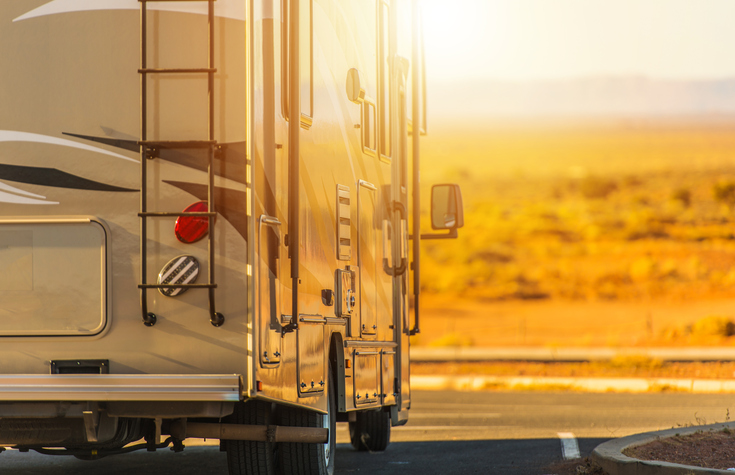
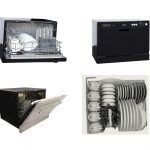


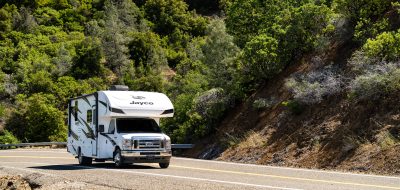


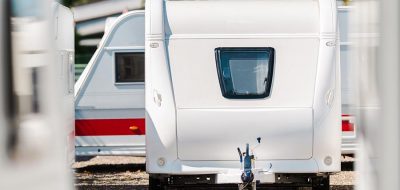
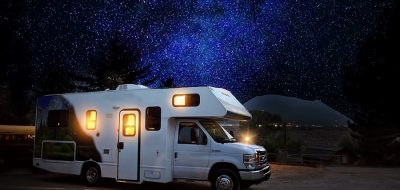
Anonymous
Great advice, written in a no nonsense way that can be understood by amatuers.
Anonymous
Very nice forum of help for RV people. Very helpful questions and answers.